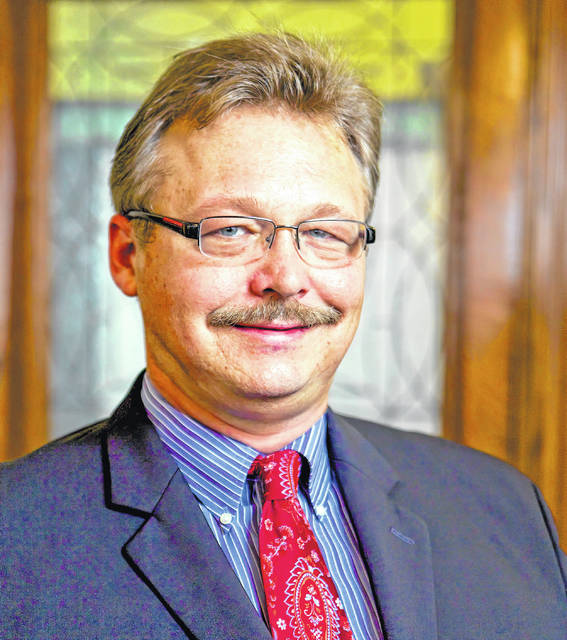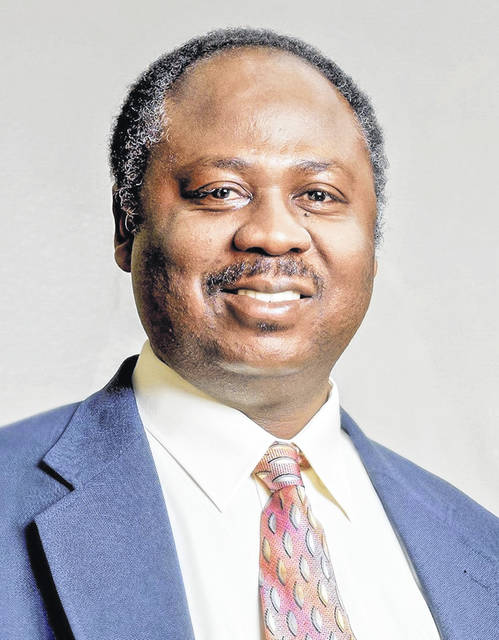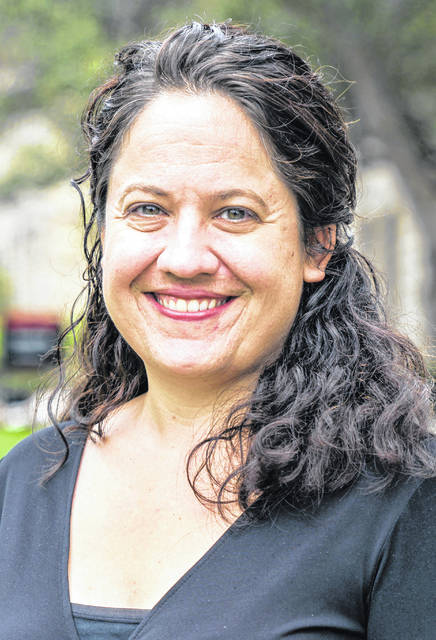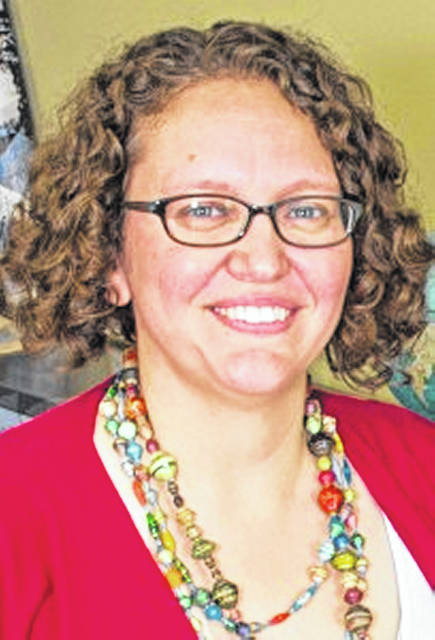



Four Ohio Wesleyan University professors with vastly different backgrounds discussed finding solutions to problems posed by the novel coronavirus pandemic in a YouTube video Monday.
“In a crazy twist of fate, I’m now teaching a course on the Black Death,” said history professor Ellen Arnold. She is referring to the most fatal pandemic in history, which killed 100 to 200 million people in Europe and Asia from 1346-1353. Arnold’s emphasis is on environmental history.
Arnold said that although the world of the Middle Ages was different in many ways than it is now, their human responses to disease mirrors what we’re seeing today, with examples of people doing good things, bad things, being indifferent, hopeful, fearful, generous and greedy.
“That interplay of difference and similarity is what makes it so exciting,” Arnold said. “One of the things we do as historians is not only tell the stories of the past, but look at ways that people of the past told stories for the future, so that we could understand our world by looking at the ways they understood theirs.”
Past pandemics and disasters “expose the underbelly of society, to let you see the structures that are in place — the invisible social, racial, gender, religious and economic structures, and the assumptions people bring into their worlds.”
In the case of the Black Death, some historians suggest it ultimately led to the end of feudalism, the predominant social system of medieval Europe.
“Food security is incredibly important in times of disaster and disease,” Arnold said. “In 1347-48, there were so many that died that there were not enough people to harvest the crops, so the food system was radically disrupted. It forced workers and landholders to re-evaluate their goals.”
While expertise is needed, Arnold said we also need to remember there is “a lot of skepticism of expertise. There are times when experts have been wrong or had malicious intent. Resistance to experts is complicated. A blanket solution may not work.”
She suggested local and community experts are vitally important in those instances.
Randy Quaye, professor of Black world studies, is the author of three books and is an expert in health care and social conditions in the African American community.
Quaye said he wondered why in some circles people refer to COVID-19 as the Chinese virus, and why the pandemic is affecting people differently. He said that ideas are not limited by national boundaries, and knowledge is not the preserve of a particular group.
“I do believe that globally some countries are doing better than others,” Quaye said. “What I’m really worried about is what we do for citizens in developing countries, like in Ghana, the system is overstretched. Countries that rely on resources like Nigeria, 60% of its revenue depends on oil, and given the price of oil now has made it very difficult to obtain the resources to meet this challenge.
“In Europe, given that they have national health systems, the impact is not going to be as severe as one would expect because everyone is covered,” Quaye continued. “In the United States, I think we are doing well, but still have a long way to go given that we currently have 12% of our population who are uninsured.”
He was concerned that Native Americans often have to travel 50 miles to reach the nearest hospital, and that “it is a disgrace that people are going hungry in our country.”
Quaye spoke about possible solutions such as a more decentralized system of government, putting more food in shelters and pantries, and using community-based initiatives such as churches for testing and quarantining.
“I would urge our leaders to make sure we have accessible health care,” Quaye said. This “disease is communicable. If you get this disease, whether you do the right thing or not forces us to be cautious about how we treat others. We really have to think about best practices.”
Professor of politics and government Ashley Biser opened the discussion “in the spirit of mutual respect and learning.”
Biser said, “It’s our contention that we can’t understand what’s happening to us unless we learn from experts in many different fields. Only with our combined knowledge can we finds ways to craft a better future.”
She said society will need to balance between the rights of the individual and the greater good of the community in the wake of the new coronavirus pandemic.
“There is an irony that we’re all in this together, but many people are experiencing this pandemic differently,” Biser said. “I’m looking forward to finding ways we can work with others after we get to leave our houses safely to find ways to build solidarity among different communities to work together.”
A professor of politics and government, Sean Kay’s specialty is global and national security. He said that during the Sputnik crisis in 1957, many Americans were worried about Russian technology with their launch of the world’s first satellite.
“President Dwight Eisenhower said we’re going to need a lot of investment in science and education,” Kay said. “He said, we’re not just going to need the Einsteins — we’re going to need the Emersons. (Ralph Waldo) Emerson was a transcendental poet. What does that have to do with national security? Everything. Because it gives us a context, the breadth to understand things and better find things we can find agreement and move ourselves as society, nation, and a world going forward. It’s time for this country to liberate it’s human capital.”
At the local level, Kay felt that Dr. Amy Acton and Ohio Gov. Mike DeWine’s handling of the COVID-19 crisis is a model and leader for the world.
“We’re going to have to have open minds and open hearts,” he said. “We’re going to have to be really patient as we do the reopening.
“We need to make sure we stick with the motto of the course,” Kay said. “We’re all going to have to help each other by challenging assumptions, being respectful and listening, and then getting busy. We’re Americans, we can do this stuff.”
The four professors were in a panel discussion that began “We’re in This Together: An Interdisciplinary Exploration of the Coronavirus Pandemic.” The course is available to OWU students and the public.
An OWU spokesman said more than 800 people have registered for the free 10-week online class, which was developed by 25 instructors over seven weeks.
“We’re overwhelmed by the response,” said OWU President Rock Jones. “Here at Ohio Wesleyan we are known for small classes, often with a dozen or 15 students. So this is quite different for us. … You’ll have the opportunity to experience the compelling teaching of our faculty that our students experience every day.”
For more information, visit www.owu.edu/COVIDclass and read coronavirus-themed faculty essays at www.owu.edu/COVIDessays.





